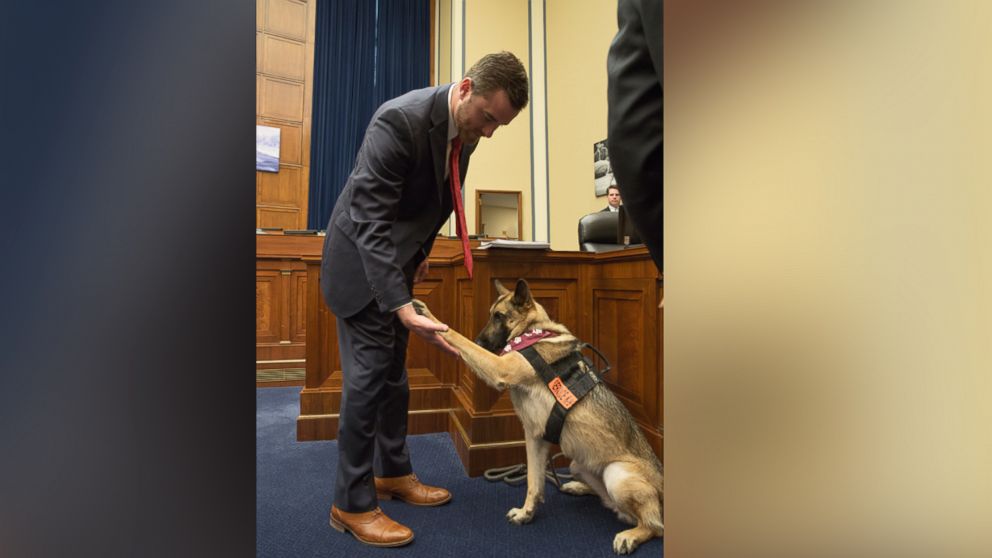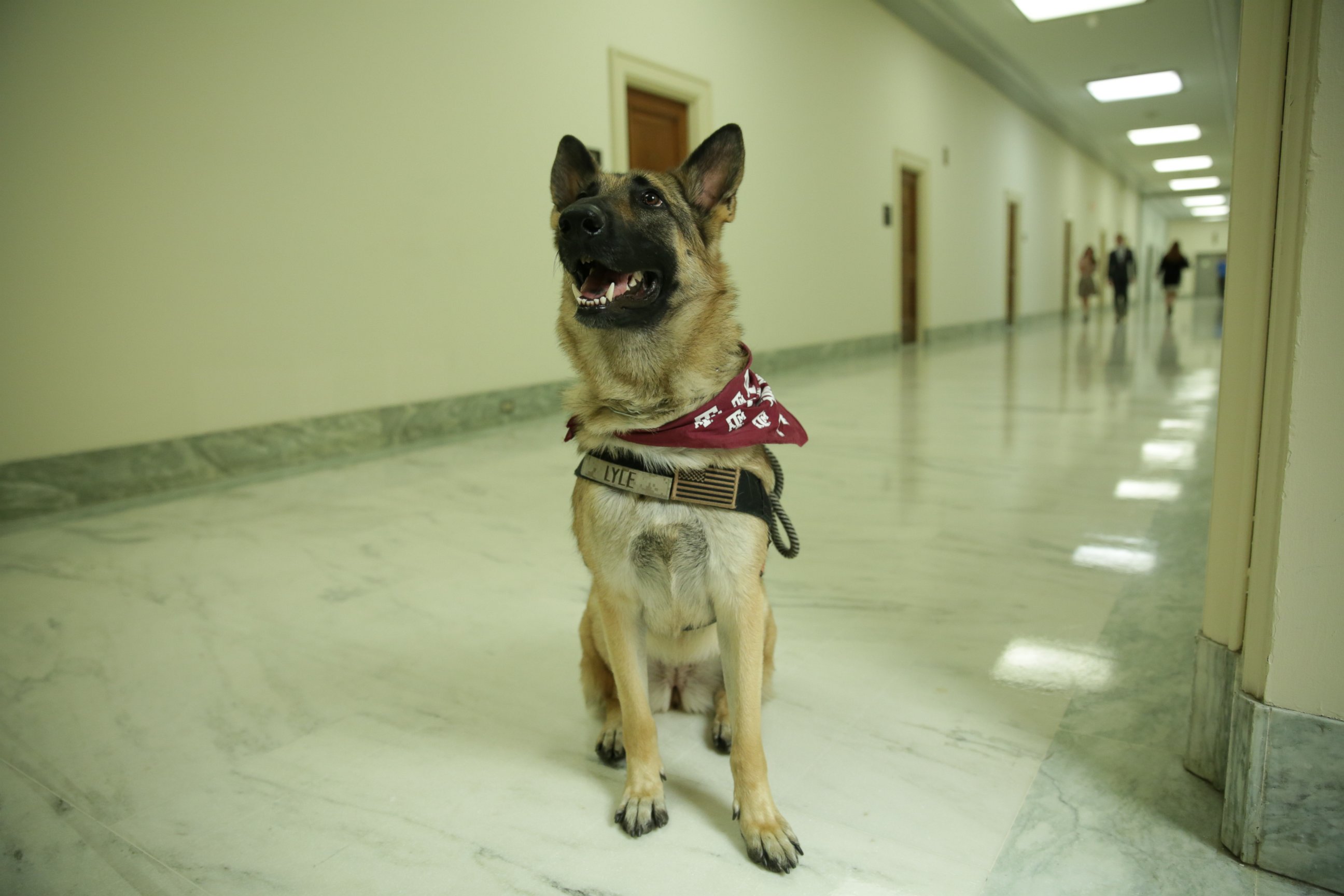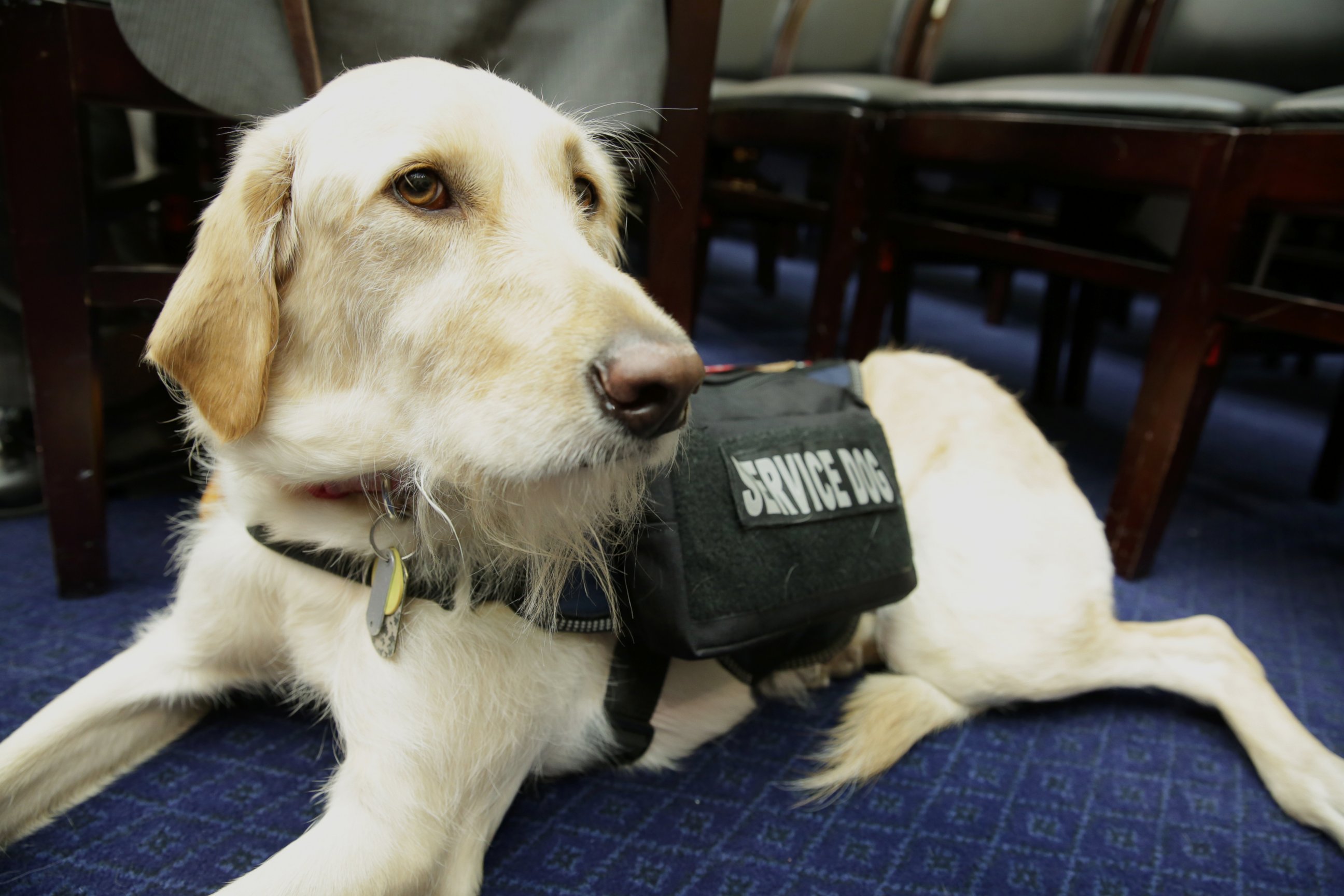Marine Is on a Mission to Provide Veterans Suffering From PTSD With Service Dogs
Cole Lyle wants veterans with PTSD to have access to service dogs.

— -- As Cole Lyle testified before Congress today, his service dog, Kaya, was at his feet.
Lyle, a Marine veteran who served in Afghanistan, suffers from Post-Traumatic Stress Disorder (PTSD).
After several years taking prescribed sleep aids and antidepressants and even contemplating suicide, he said he decided to try a different kind of therapy: trained service dogs.
Service dogs are not provided by the U.S. Department of Veterans Affairs, so Lyle tried to get a dog through local nonprofit groups.
But the wait times were over a year, and Lyle said he didn’t feel like he had time to wait.
He purchased Kaya and had her trained for PTSD symptoms by an Assistance Dogs International-accredited trainer. After spending $10,000 of his own money, he had the help he needed.
“The bad days are less frequent than they have ever been,” Lyle told the House Committee on Oversight and Government Reform.

Lyle testified before the committee about the benefits he’s experienced since having Kaya, including how Kaya knows to wake him up when he’s suffering from a nightmare. The dog has reinvigorated his life with purpose, he said.
Now, he’s speaking out in the hopes that the VA will change its policy.
Currently, the VA does not provide benefits for PTSD or mental health dogs because they say the dogs are not known to be effective in overcoming specific functional limitations in veterans with PTSD.
A study commissioned by the 2010 National Defense Authorization Act was meant to assess the way the VA could use service dogs for treatment and rehabilitation for veterans. However, that study has been plagued with challenges that have only allowed 40 dogs to be paired with veterans, according to the House committee.
In 2012, the VA concluded it would not support service animals, citing a lack of evidence supporting the efficacy of mental health service dogs.
Dr. Michael Fallon, Chief Veterinary Medical Officer for the Office of Research and Development at the VA, echoed this sentiment at the hearing, saying “the benefits of service dogs in assisting people with mental health diagnoses have not been established in scientific literature.”
But Rory Diamond, the executive director of K9s for Warriors, told the committee that research already shows veterans with PTSD receive extraordinary benefits from service dogs.
Diamond said benefits for veterans include eliminating their use of medications, handling anxiety better, and reducing suicidal thoughts, nightmares, and night terrors.
“There are thousands of veteran suicides that could have been prevented if they would have had access to a service dog,” Diamond told Congress.

Steven Feldman, executive director of the Human Animal Bond Research Initiative (HABRI) Foundation, testified that there is already significant scientific evidence to substantiate the use of service dogs for veterans with PTSD.
He pointed to several studies, include research conducted by Purdue University on animal-assisted intervention for victims of trauma.
“People with PTSD often experience emotional numbing, yet the presence of an animal has been reported to elicit positive emotions and warmth,” that study concluded. “Animals have also been demonstrated as social facilitators that can connect people and reduce loneliness, which may assist individuals with PTSD break out of isolation and connect to the humans around them.”
A new bill, H.R. 4764, will direct the VA to carry out a five-year pilot program in which the agency will provide service dogs and veterinary health insurance to certain veterans who served on active duty on or after Sept. 11, 2001, and were diagnosed with, and continue to suffer from, PTSD.

For Lyle, this bill is a crucial step for veterans who are running out of options to combat PTSD.
“I believe that allowing veterans to fight PTSD without all options available to them is tantamount to sending our military to fight an enemy without a secondary weapon in their arsenal,” Lyle said.
Dr. Fallon concluded his opening testimony by saying that the VA offers a wide range of treatment options to treat PTSD and its symptoms and is using technologies to increase those offerings.
“VA remains open to new and innovative treatments for PTSD and supports research on these treatments as part of its portfolio on PTSD and related conditions,” he said.



